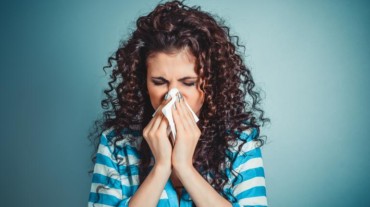
May 5 is celebrated as World Hand Hygiene Day to mobilize people across the world to increase adherence to hand hygiene in health care facilities. And the theme for this year’s World Hand Hygiene Day is “SAVE LIVES: Clean your hands.”
The main goal is to recognize that hand washing is one of the most effective actions a person can take to reduce the spread of pathogens and prevent infections like covid-19, according to the WHO. In case you’re still taking washing your hands lightly, here’s a reminder.
Here’s what happens when you don’t wash your hands frequently enough
During the course of a day, we touch a number of things—including soiled surfaces, gadgets, utensils, doorknobs, and handrails that house bacteria and viruses. These germs can enter our body when we touch our eyes, nose, and mouth without washing our hands.

We also use our hands to prepare as well as eat food. If our hands are not clean, they can contaminate the food. In fact, there are a number of infectious diseases that can spread from one person to another with contaminated hands.
Also read: Frequent hand washing making your skin dry? This is how you can keep them soft and supple
In the wake of the coronavirus pandemic, scientists have said that washing hands frequently can restrict the spread of covid-19. Not just this, proper handwashing can also prevent the spread of cold and flu among other viral diseases.
Just to drive the point home, here are the risks you are exposing yourself and other by not washing your hands frequently:
1. Diarrhoea
To prevent diarrhoea, you should ensure that you wash your hands regularly. As per a study conducted by University of Calaba, Nigeria, washing hands regularly may help reduce the occurrence of diarrhoea by up to 30%.
2. Hepatitis A
This viral infection which may cause liver problems, jaundice, abdominal pain, fever, and fatigue is often spread through food which has been contaminated by people preparing it with unclean hands.
According to the National Institute of Allergy and Infectious Diseases, consuming even microscopic traces of contaminated faecal matter can result in transmission of Hepatitis A. You can avoid this risk of this disease to a large extent by washing your hands—and of course eating clean food and drinking clean water.
3. Pink eye
One of the most annoying infections you can get, pink eye is also very contagious.
Select Topics of your interest and let us customize your feed.
PERSONALISE NOW
According to the National Eye Institute, USA, since people rub their eyes to alleviate discomfort and then touch their surroundings, the germs that cause pink eye end up on all sorts of surfaces—where it can live for hours or even days. Washing hands helps get rid of the virus or bacteria even before it can spread.
Also read: Here’s a coronavirus update: Experts say covid-19 can spread through the eyes
4. Common cold
Getting a cold can make you feel miserable. According to a study published in the American Journal of Preventive Medicine, frequent handwashing can lower a person’s risk of falling prey to respiratory illness by 45%

5. Covid-19
You already knew this one, but here’s a gentle reminder. One of the most important things we need to do to win this battle against covid-19 is washing our hands frequently. You need to wash your hands with soap and running water for at least 20 seconds to curb the spread of covid-19 and these other diseases.
And what better day to begin the conscious practice of washing your hands than on World Hand Hygiene Day 2020